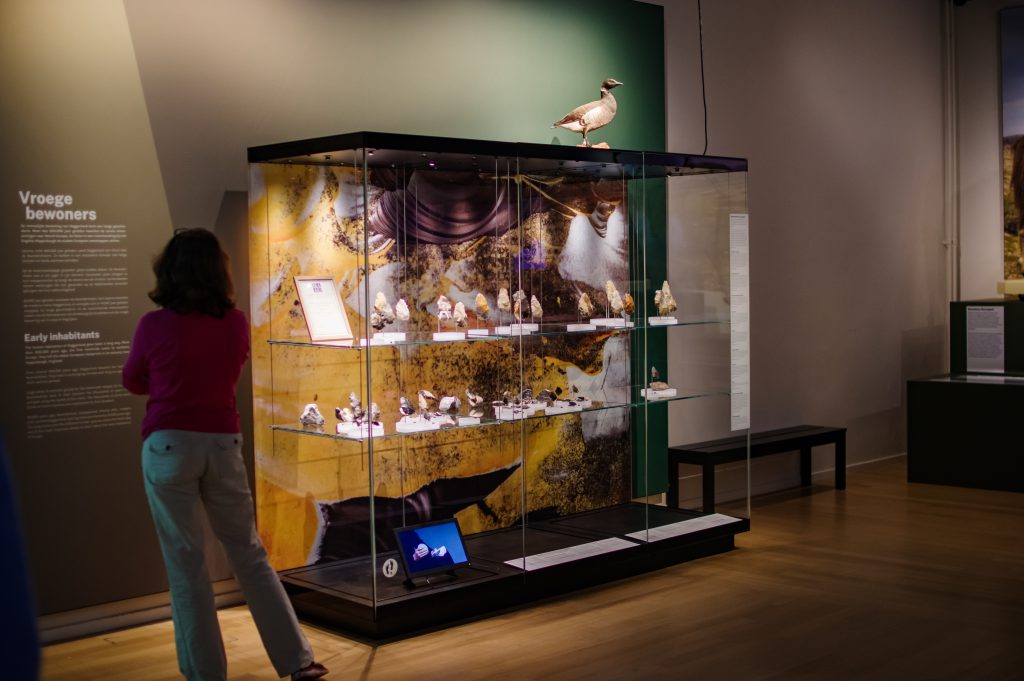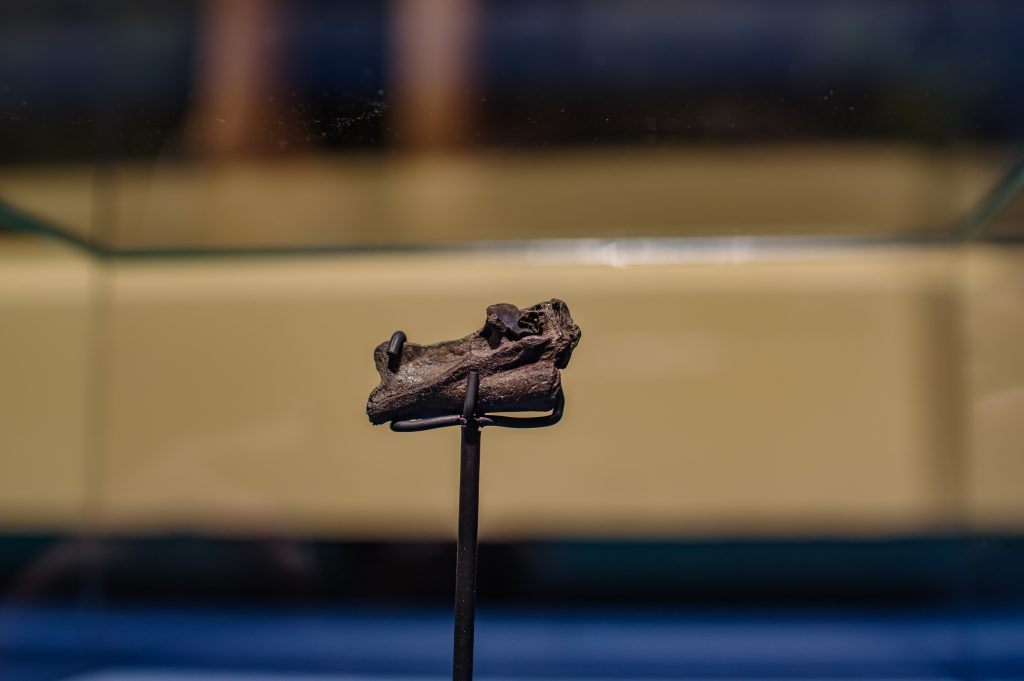Where: Rijksmuseum van Oudheden, Leiden
When: 5 June – 31 October 2021
Website: click here

In 2021, I worked on the exhibition Doggerland: Lost World in the North Sea at the Rijksmuseum van Oudheden (RMO) in Leiden. The exhibition explored one of Europe’s most fascinating prehistoric landscapes: the vast plain that once connected Britain and the Netherlands before being swallowed by the rising seas around 8,000 years ago.
A Sunken World
Doggerland was once home to Neanderthals, Mesolithic hunter-gatherers who roamed a landscape of rivers, forests, and wetlands — a thriving world that disappeared beneath the North Sea as the Ice Age ended. The exhibition revealed how archaeological finds from trawler nets, seabed surveys, and coastal excavations allow us to reconstruct this lost world and the lives of its inhabitants.
My Role
As part of the curatorial team, I contributed to:
- Content development and research, translating scientific data into compelling public storytelling;
- Writing and editing exhibition texts and catalogue entries;
- Advising on display and narrative flow, ensuring archaeological evidence was presented with both accuracy and emotional resonance.
My favorite finds

Science Meets Imagination
Doggerland stood at the intersection of science and imagination. It combined cutting-edge paleoenvironmental research with artistic reconstructions, immersive visuals, and interactive media, helping visitors picture a vanished landscape beneath familiar waters. The exhibition captured the imagination of audiences and researchers alike, emphasizing both the fragility and resilience of human adaptation.
Reflection
For me, Doggerland was a transformative project — one that blended rigorous science with storytelling to make invisible history visible again. It highlighted the urgency of understanding climate change not as a modern phenomenon, but as a recurring force in human experience. Standing before the fossils and flint tools that once lay beneath the waves, I felt profoundly connected to the people who adapted — and ultimately lost — their world to the sea.